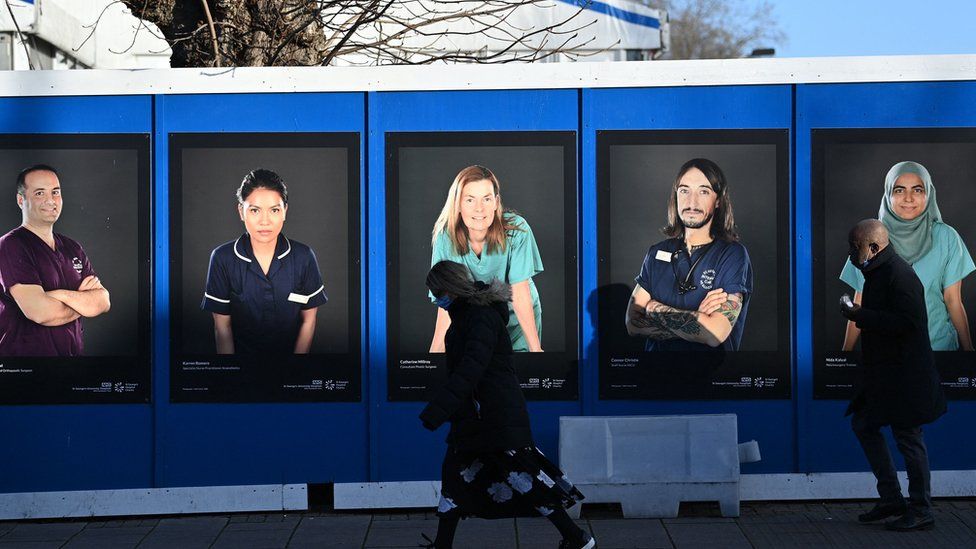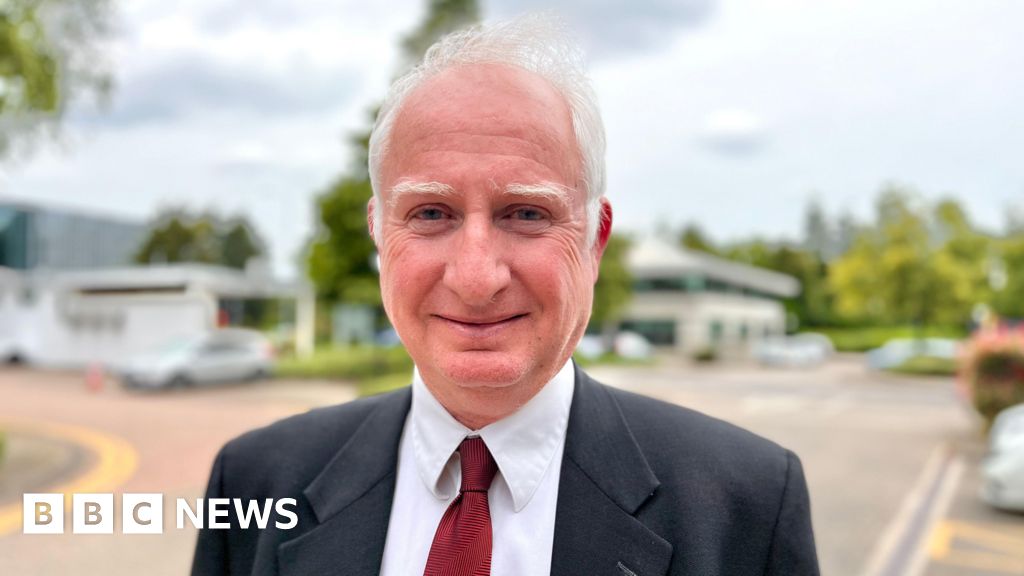ARTICLE AD BOX
 Image source, Getty Images
Image source, Getty Images
By Nick Triggle
Health correspondent
There will be a major expansion in training places for health staff in England, under a "historic" 15-year plan to fill NHS staffing shortages.
It includes more university places for medical and nursing students and a greater emphasis on apprenticeships with the first ever scheme for doctors.
A consultation on whether five-year medical degrees could be shortened by a year will also be launched.
The plan has taken more than a year longer to be published than expected.
During that time, the NHS has been beset by strikes - with the dispute with doctors still continuing.
Pay does not feature in the plan - instead, it focuses on how much training places need to increase.
Currently, half of new doctors and nurses have to be recruited from abroad as the UK supply route has struggled to keep up with demand.
One out of every 10 posts remains unfilled - more than 110,000 vacancies.
And without action, this could rise to 360,000 by 2037, modelling for the plan suggests.
Prime Minister Rishi Sunak and NHS England chief executive Amanda Pritchard will officially unveil the plan on Friday.
To help achieve the goals, the government has promised £2.4bn over the next five years.
Ms Pritchard called it a "historic" moment for the NHS.
"It gives us a once-in-a-generation opportunity to put staffing on a sustainable footing for years to come," she added.
Mr Sunak called it "one of the most significant commitments" he would make as prime minister.
The targets for 2031 include:
- doubling medical school places for student doctors, to 15,000 a year
- a 50% increase in GP trainee places for junior doctors
- 24,000 more nurse and midwife student places a year - close to double the number now
In the next five years, the proportion of NHS staff, including physios, podiatrists and maternity staff, trained through apprenticeships - combining paid work with study and no tuition fees - will double, to one out of every six.
And next year, an apprenticeship for doctors will launch, with a few hundred places.
Gemma Petters
Gemma Petters is one of thousands of people to have already started a nursing apprenticeship - in 2016, aged 30, at Royal Derby Hospital.
"I left school not knowing what do do," she says. "I had lots of different jobs."
Ms Petters has now qualified as a nursing associate - a role that bridges the gap between healthcare assistant and nurse.
Her next step will be to start two years of training to become a nurse.
'Really important'
Learning on the job has been really beneficial, Ms Petters says.
"We are learning the ethos of the NHS and getting to know how our patients want to be looked after," she says.
And earning while she learns is important too.
"I've got children and a house to run," Ms Petters says. "The security is really important and has enabled me to pursue a career in the NHS."
Being welcomed
There will also be a major drive on retention - including more flexible-working options and career development to provide clear routes to senior jobs. Last year, a record more than 40,000 nurses left the NHS.
The plan is being welcomed by many in the health service.
Matthew Taylor, of the NHS Confederation, which represents health trusts, called it "bold and ambitious".
The same commitment was now needed for the social care workforce, he added.
Others have pointed out the drive to increase training places could be undermined by the lack of placements on the front line - half of a nurse student's degree is spent working in the NHS.
It will also take years before this expansion starts to have an impact on current shortages - it takes five years to complete a medical degree and three a nurse degree.
'Dismal reality'
Dr Billy Palmer, of the Nuffield Trust think tank, said while it was good to see the plan published, there had been "years of drift".
And he warned the "dismal reality" of working in the NHS at the moment could undermine the push to tackle shortages in the long term.
"There is a risk that we will feed more and more people into training only to burn them out ever faster," Dr Palmer said.
Labour shadow health secretary Wes Streeting said: "The government should have done this a decade ago - then the NHS would have enough staff today."

 1 year ago
29
1 year ago
29








 English (US)
English (US)